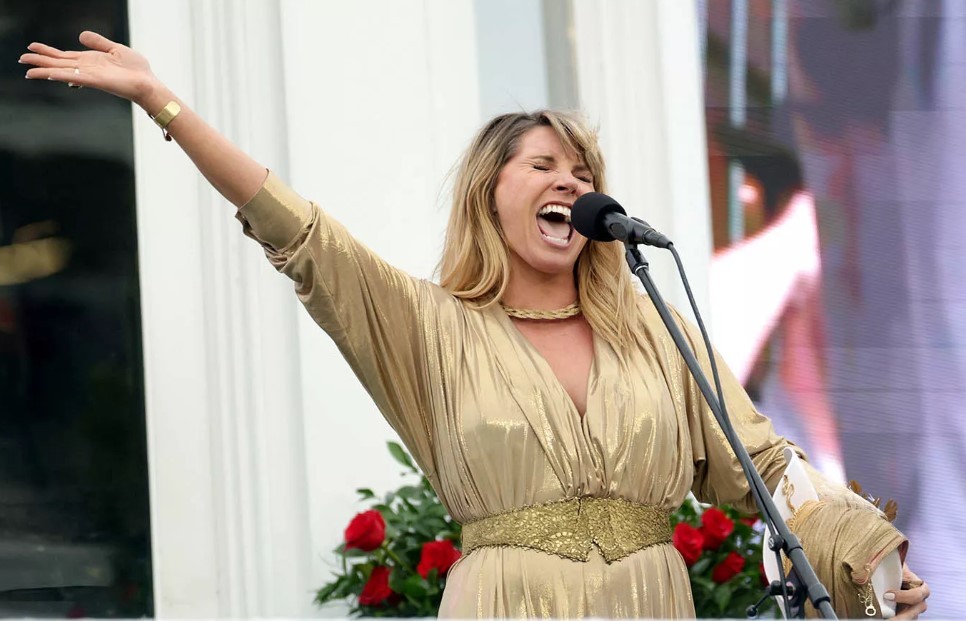American National Anthem: Full Lyrics, History and Other Patriotic Songs
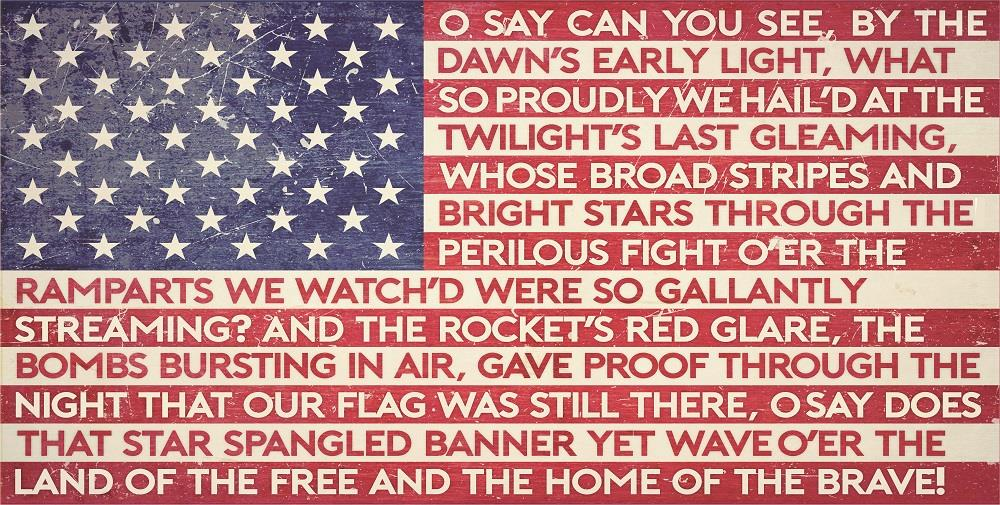 |
| "The Star-Spangled Banner" - Full Lyrics of US National Anthem |
"The Star-Spangled Banner" is the national anthem of the United States.
The poem's lyrics, "Defence of Fort M'Henry," were written by 35-year-old lawyer and amateur poet Francis Scott Key on September 14, 1814, after he saw British Royal Navy ships bombard Fort McHenry in Baltimore Harbor during the Battle of Baltimore in the War of 1812. The Star-Spangled Banner, a large American flag with 15 stars and 15 stripes that flew jubilantly above the fort during the U.S. victory, served as Key's inspiration.
For the Anacreontic Society, a men's social club in London, the poem was set to the tune of a well-known British song. In the United States, "To Anacreon in Heaven" (also known as "The Anacreontic Song") was already well-known. This song, now known as "The Star-Spangled Banner," quickly gained popularity in the United States. It has a 19-semitone range and is notoriously challenging to sing. Only the first stanza of the poem's four stanzas is now frequently sung.
The Star-Spangled Banner was approved for official use by the United States Navy in 1889 and by President Woodrow Wilson in 1916. On March 3, 1931, a congressional resolution (46 Stat. 1508, codified at 36 U.S.C. 301), which was signed by President Herbert Hoover, declared "The Star-Spangled Banner" to be the national anthem.
Full lyrics of "The Star-Spangled Banner" - US National Anthem
O say can you see, by the dawn's early light,
What so proudly we hailed at the twilight's last gleaming,
Whose broad stripes and bright stars through the perilous fight,
O'er the ramparts we watched, were so gallantly streaming?
And the rocket's red glare, the bombs bursting in air,
Gave proof through the night that our flag was still there;
O say does that star-spangled banner yet wave
O'er the land of the free and the home of the brave?
On the shore dimly seen through the mists of the deep,
Where the foe's haughty host in dread silence reposes,
What is that which the breeze, o'er the towering steep,
As it fitfully blows, half conceals, half discloses?
Now it catches the gleam of the morning's first beam,
In full glory reflected now shines in the stream:
'Tis the star-spangled banner, O long may it wave
O'er the land of the free and the home of the brave.
And where is that band who so vauntingly swore
That the havoc of war and the battle's confusion,
A home and a country, should leave us no more?
Their blood has washed out their foul footsteps' pollution.
No refuge could save the hireling and slave
From the terror of flight, or the gloom of the grave:
And the star-spangled banner in triumph doth wave,
O'er the land of the free and the home of the brave.
O thus be it ever, when freemen shall stand
Between their loved homes and the war's desolation.
Blest with vict'ry and peace, may the Heav'n rescued land
Praise the Power that hath made and preserved us a nation!
Then conquer we must, when our cause it is just,
And this be our motto: 'In God is our trust.'
And the star-spangled banner in triumph shall wave
O'er the land of the free and the home of the brave!
The lyrics video of "The Star-Spangled Banner" - US National Anthem below
Francis Scott Key's lyrics of "The Star-Spangled Banner"
Francis Scott Key and John Stuart Skinner sailed from Baltimore on board the ship HMS Minden, a cartel ship flying a flag of truce on a mission endorsed by President James Madison, on September 3, 1814, following the Burning of Washington and the Raid on Alexandria. Their goal was to secure the release of the prisoners, including William Beanes, an old friend of Key's and the well-liked town doctor of Upper Marlboro who had been apprehended in his residence. For assisting in the detention of British soldiers, Beanes was charged. On September 7, Key and Skinner boarded the British flagship HMS Tonnant and had dinner conversations with Vice Admiral Alexander Cochrane and Major General Robert Ross about their respective war plans. Beanes was initially refused by Ross and Cochrane, but they eventually agreed after seeing letters from wounded British prisoners thanking Beanes and other Americans for their generosity.
Key and Skinner were imprisoned until after the battle, first on HMS Surprise and then back on HMS Minden, as a result of having heard specifics of the plans for the attack on Baltimore. Following the bombardment, some British gunboats tried to bypass the fort and make a landing in a cove to the west of it, but they were repelled by fire from nearby Fort Covington, the last line of defense for the city.
Key had seen the bombardment during the soggy night and noted that the fort's smaller "storm flag" was still flying, but he would not learn the outcome of the battle until dawn once the shell and Congreve rocket barrage had stopped. The larger flag had been raised that morning, September 14, and the storm flag had been lowered.
HMS Terror and HMS Meteor supplied some of the "bombs bursting in air" during the bombardment.
The American triumph and the sight of the sizable American flag triumphantly flying above the fort served as inspiration for Key. In her home on Pratt Street in Baltimore, Mary Young Pickersgill and other workers had created this flag, which had fifteen stars and fifteen stripes. The flag is currently on display in the National Museum of American History, a treasure of the Smithsonian Institution, where it later became known as the Star-Spangled Banner. Amelia Fowler restored it in 1914, and as part of an ongoing conservation program, she did it once more in 1998.
The following day, Key wrote a poem on the back of a letter he had kept in his pocket while on board the ship. He and Skinner were released in Baltimore at dusk on September 16. At the Indian Queen Hotel, where he was staying, he finished the poem, which he called "Defence of Fort M'Henry". The Analectic Magazine first published it on a national scale.
A song by Key that was also composed to the tune of "The Anacreontic Song" served as the inspiration for a large portion of the poem's concept, including the flag imagery and some of the wording. When Stephen Decatur and Charles Stewart returned from the First Barbary War, the song "When the Warrior Returns" was written in their honor.
US Independence DayThe Fourth of July, also known as Independence Day, is a federal holiday in the United States that honors the signing of the United States' Declaration of Independence on July 4, 1776. The thirteen American colonies were proclaimed to be united, free, and independent states by the Continental Congress, which also declared that they were no longer subject (and subordinate) to King George III of Great Britain. The Congress had voted to declare independence two days earlier, on July 2, but it was not declared until July 4. Independence Day is frequently associated with political speeches, ceremonies, parades, barbecues, carnivals, fairs, picnics, concerts, baseball games, family reunions, and other public and private events honoring American history, culture, and traditions. The United States celebrates Independence Day as its national holiday. |
How many national anthems: other patriotic songs of America
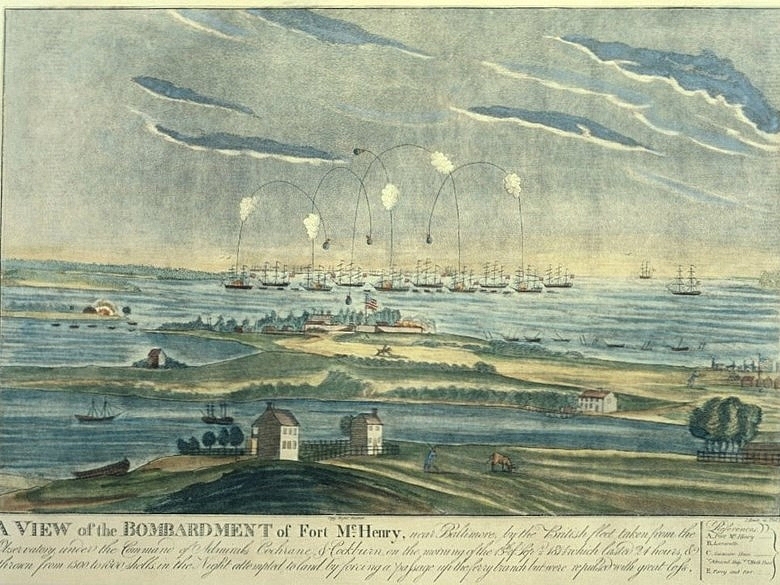 |
| America’s Five National Anthems |
Although "The Star-Spangled Banner" has served as the official anthem since 1931, other patriotic songs have gained more notoriety (and become simpler to sing) over time. And all of them, even "The Star-Spangled Banner," have stirred up some controversy.
“America” (My Country, Tis of Thee)
In 1831, Samuel Francis Smith, a student at Andover Seminary in Massachusetts, had been given the task of translating texts from several German song collections. One of the songs--“God Save Saxony”—had an attractive tune that inspired Smith to write new words for a patriotic hymn for the United States.
Engraving of Samuel Francis Smith.
Astonishingly, Smith was unaware that the tune of “God Save Saxony” had been lifted from the British national anthem, “God Save the King”—and, it seems, thousands of Americans were equally unaware of the connection to the once-hated English monarch, for soon, Smith’s hymn was everywhere.
My Country, ‘tis of thee,
Sweet land of liberty.
Of thee I sing.
Despite the tune’s link to the British national anthem, “America” served as our de facto national anthem for a hundred years--until “The Star-Spangled Banner” became the official song in 1931.
“America the Beautiful”
The song "America the Beautiful" is one that is frequently recommended as an alternative to "The Star-Spangled Banner."
The original text was taken from a poem by Katharine Lee Bates that was initially printed in The Congregationalist in July 1895. The song's score was created by Samuel A. Ward in 1882 for the hymn "O Mother dear, Jerusalem," and it was released in 1892. In 1910, the Bates poem and Ward's music were combined under the title "America the Beautiful."
The words that are most frequently sung are not patriotic in the traditional sense, as the title suggests. In fact, some have argued that the song lacks any real patriotic fervor at all and is essentially a musical travelogue:
O beautiful for spacious skies,
For amber waves of grain,
For purple mountain majesties
Above the fruited plain!
America! America!
God shed his grace on thee
And crown thy good with brotherhood
From sea to shining sea!
However, patriotic sentiments do show up in later verses that are seldom sung:
O beautiful for heroes proved
In liberating strife.
Who more than self their country loved
And mercy more than life!
America! America!
May God thy gold refine
Till all success be nobleness
And every gain divine!
Interestingly, these lyrics are quite different from Bates’ original words, which portray America as a work in progress—and an imperfect work, at that.
America! America!
God shed His grace on thee
Till selfish gain no longer stain,
The banner of the free!
A lifelong, active Republican, Bates broke with the party in 1924 because of its opposition to American participation in the League of Nations.
“God Bless America”
Another suggested replacement for “The Star-Spangled Banner” has been Irving Berlin’s “God Bless America,” written in 1918, but not published (and revised) until 1938.
It begins with a verse not sung today, reflecting the growing threat of war in Europe:
While the storm clouds gather far across the sea,
Let us swear allegiance to a land that's free
Let us all be grateful for a land so fair,
As we raise our voices in a solemn prayer.
God bless America, land that I love….
The song generated a lot of heated debate. The lyrics were viewed as jingoistic and arrogant by many on the Left.
The Right also expressed displeasure. In addition to being written by a Tin Pan Alley tunesmith rather than a "serious" composer, Berlin was also Jewish and an immigrant (born in Russia), making him, in the eyes of some, not even a "real" American.
Cooler heads prevailed, in part due to the hit recording by the “all-American” Kate Smith. Also, as war drew nearer and finally became reality, the invocation to God to “stand beside” and “guide” the United States resonated with most Americans.
“This Land is Your Land”
For those embarrassed by Irving Berlin’s heart-on-sleeve sentiment, there is “This Land is Your Land.” It was written by Woody Guthrie in 1940, in direct response to "God Bless America," which Guthrie considered unrealistic and complacent, given what he’d seen and experienced as he crisscrossed the country during the Great Depression.
Guthrie’s verse celebrates the natural beauty of the country—not unlike “America the Beautiful”— while the chorus drives home the populist credo that the nation belongs to all the people, not just the rich and powerful.
Most recordings feature only the first four verses of the song, omitting the ones that include more overtly political sentiments, like this one, which speaks directly to Irving Berlin’s “God Bless America.”
One bright sunny morning in the shadow of the steeple,
By the relief office I saw my people.
As they stood hungry,
I stood there wondering if God blessed America for me.
Lines like these have prevented “This Land Is Your Land” from serious consideration as a national anthem, even though it’s clear that Guthrie loved America as much as Irving Berlin did—although in very different ways.
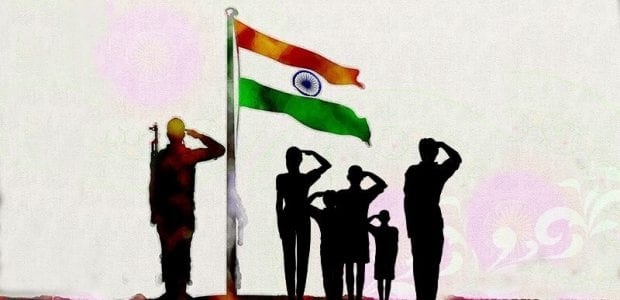 Full Lyrics of India’s National Anthem Full Lyrics of India’s National Anthem Check out full lyrics of India's national anthem in short and long versions. |
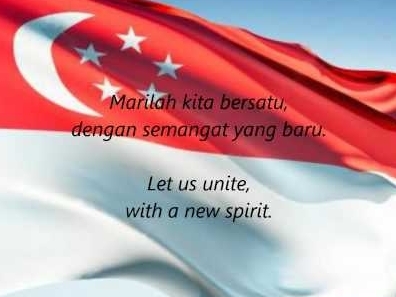 Full Lyrics of Singapore’s National Anthem Full Lyrics of Singapore’s National Anthem Listen to Onward Singapore-the national anthem of Singapore with a lyrics video to sing along. |
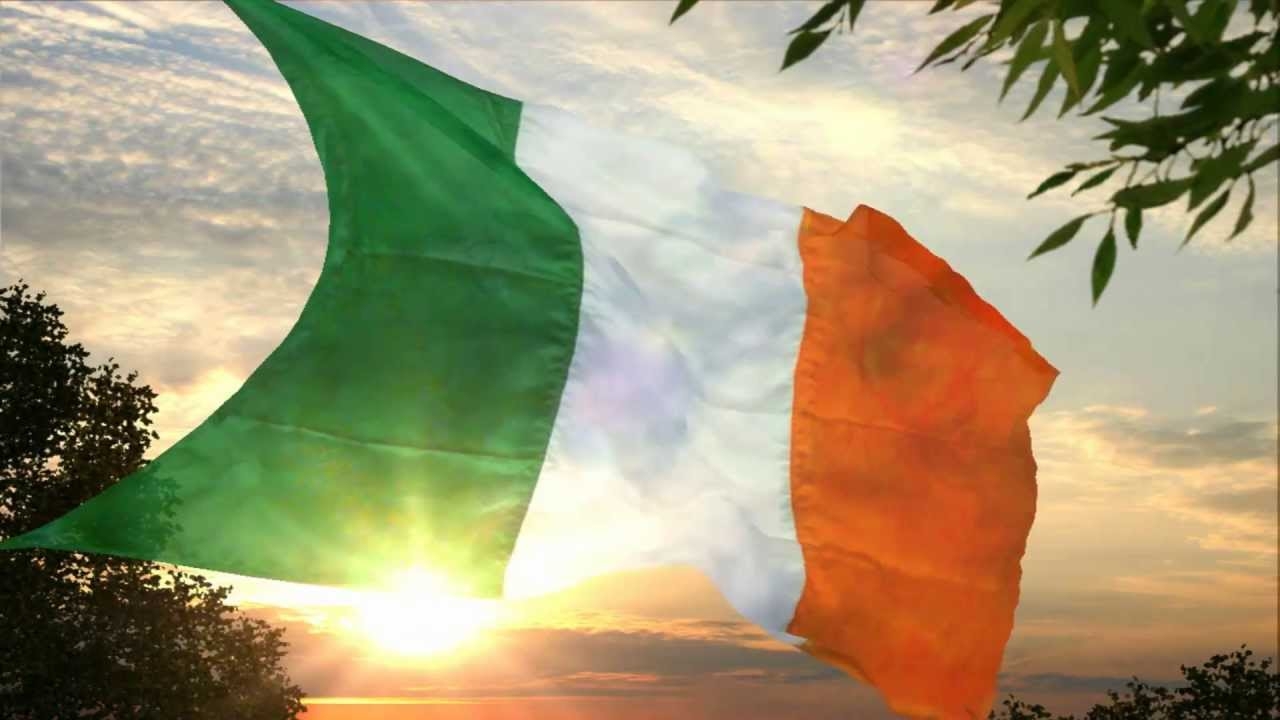 Full Lyrics of Ireland’s National Anthem Full Lyrics of Ireland’s National Anthem Today, the English version of the Ireland anthem is rarely used, and many people are not aware that the Irish version was not the original ... |
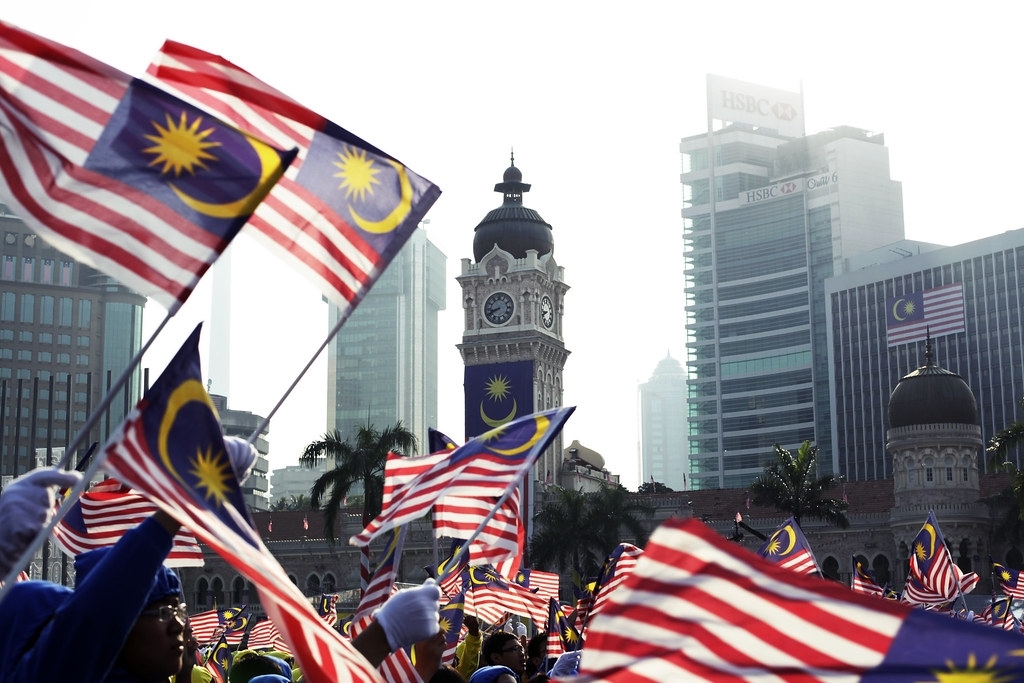 Full Lyrics of Malaysia’s National Anthem Full Lyrics of Malaysia’s National Anthem Negaraku (meaning My Country in Malay) is the national anthem of Malaysia. How was it composed? What is the meaning of the song? |

